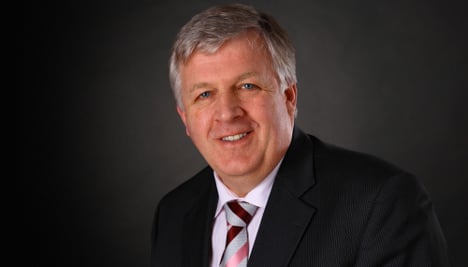Originally hailing from the Netherlands, Kees de Vries settled in Deetz in the eastern German state of Saxony-Anhalt with his extended family in 1992 to set up a dairy farm. The 54-year-old Dutchman joined the conservative Christian Democratic Union (CDU) in 1999 and became a German citizen in 2005. He is running for the Anhalt district of the lower house of parliament, the Bundestag.
What made you decide to enter German politics?
I came to Germany with five siblings to set up our farm and as the manager I had the chance to integrate myself into society. Starting in 1994 I took on 12 or 13 volunteer positions and eventually I ended up getting involved in politics.
Why did you choose the Christian Democrats?
It’s my political home, plain and simple. I’ve been a member of the CDA (the Netherland’s Christian Democratic Appeal) since I was 18.
You had to surrender your Dutch passport to become a German citizen. Do you support dual citizenship in Germany?
I’m proud to have received German citizenship. It wasn’t a particularly difficult decision to make because there was no real difference one way or another. I wasn’t sad to give up my Dutch passport, but I’ll admit it was a bit emotional. If I move here to pursue my existence then what’s the problem with showing my commitment to Germany? Not to imply I back getting rid of all the national borders, but I’d support the creation of a European passport. Perhaps my wife can at least apply for dual citizenship now that she’s married to a German.
How German do you feel?
I’m German living in Germany. Or perhaps I should say I feel like a European in Germany.
Do you feel your background gives you different perspective when approaching political issues?
I believe it does. I spent my youth in a somewhat different culture and that gives you a broader view. My life has been enriched by moving here. I have a more cosmopolitan approach to things.
What do you consider the most important issues of this year’s election?
Naturally the economic crisis and everything it’s affected. But for me more than anything I’m focused on the Mittelstand, the small and mid-sized companies forming the backbone of Germany’s economy are forgotten too often. I’m also interested in family policy, which is, of course, a broad field. We need to look at sustainable generational equality – how can we be fair to the older generation without burdening our great-grandchildren too heavily.
How can Germany improve the integration of immigrants?
I believe Germany does a lot right. I’m not sure if the problem is the rules or the people they affect. Integration is not only a problem for immigrants. I think we lose a lot of kids – German and others – early on in the educational system. We need to help all of the so-called problem kids, but the children are merely a reflection of the parents. So we need to reach the parents too. I believe we put too much emphasis on the problem kids when they’re 16 or 17, but we need to try to win them back when they’re six or seven.
You’ve said you consider yourself German – but if you become an MP, whom will you support during the World Cup next summer? Germany or Holland?
I lost my interest in football when I moved to Germany.


 Please whitelist us to continue reading.
Please whitelist us to continue reading.
Member comments